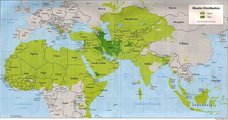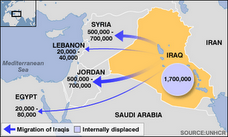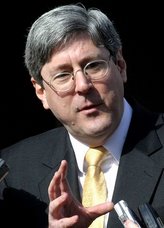Nothing new on Page One.......except to estimate that it would take us a year to leave: just to get us and our stuff out. That is what happens when you occupy a country, build new huge bases, plus a palatial, tough, can stand on its own, Embassy.
Sounds like a "come from behind strategy" to me, but do the Iraqi's want us there? Recently the parliament passed a bill telling us to leave by the end of this year. Maybe, since it will take a year, it would be a good idea to get started
And, finally, can we AFFORD it?
TO LEARN THE FINANCIAL COST OF THE WAR AT THIS MOMENT, CLICK HERE It is over 433 billion last time I looked and we're borrowing money to pay for it. And, of course, the military guys are now confessing that their leadership was "out to lunch" for three years, 2004-6. Now that is encouraging. But at least it is the truth.
So, here is page two of the post article:
This is hardly the first time officials have considered troop reductions. The original U.S. war plan called for the Army to have only 30,000 troops in Iraq by fall 2003; later, top commanders planned for a drawdown in the summer of 2004. Neither option came to pass, as the military found itself engaged in a tougher and longer war in Iraq than it or the Bush administration had expected.
But officials here insist that they are now assessing the situation more soberly. For example, when Maj. Gen. Benjamin Mixon, the commander of the 25th Infantry Division, briefed reporters last month, he expressed worries about the performance of Iraqi forces and called the Iraqi government in Diyala province "nonfunctional." He also said candidly that he did not have enough soldiers in Diyala. As one officer here put it, his comments were of the sort that generals in Iraq once discussed in private but avoided stating publicly.
"I think there's a greater appreciation for complexity," said Lt. Col. Brad Brown, a crisis manager for the 1st Cavalry Division, which is overseeing operations in Baghdad.
Officials now dismiss the 2004-06 years -- when Gen. George W. Casey Jr. was in command -- as a fruitless "rush to transition," as one senior defense official here put it. "The idea was, 'As they stand up, we'll stand down,' " he said. That phrase has been all but banished from the Green Zone, as has the notion of measuring U.S. progress in Iraq by the number of Iraqi troops trained or by changes in U.S. casualty counts.
"We had previously 'transitioned' ourselves into irrelevance, and the whole thing was going to hell in a handbasket," a senior official commented in an e-mail.
Top military officials even say that Iraq's elections in December 2005 only deepened sectarian divides and contributed to the outbreak of a low-grade civil war in Baghdad last year. "We wanted an election in the worst way, and we got one in the worst way," one U.S. general here said.
Another major difference is that U.S. officials, both political and military, say they are more willing to take chances than before. The clearest gamble was the decision in January to move U.S. troops off big, isolated bases and into 60 small, relatively vulnerable outposts across Baghdad. However, the risk-taking also includes reaching out to people once declared enemies of the United States, such as Sadr, the Shiite cleric. "Some people say he might be ready to negotiate behind the scenes," Odierno said in an interview.
In addition, commanders will be forced to lean heavily in coming months on Iraqi security forces, whose performance has been mixed at best. The U.S. strategy in Baghdad of "clear, hold and build" calls for clearing neighborhoods of enemy forces, then holding them with a sustained military presence while reconstruction efforts get underway. Yet by itself, the United States does not have enough troops to "hold," so that mission must be executed by Iraqis.
"My nightmare -- the thing that keeps me up at night -- is a failure of Iraqi security forces, somehow, catastrophically, mixed with a major Samarra-mosque-type catastrophe," Maj. Gen. Joseph F. Fil Jr., commander of the 1st Cavalry Division, said last week, referring to the February 2006 bombing of a mosque in Samarra that sparked renewed civil strife.
Even as they focus on the realities in Iraq, officials here are also keeping an eye on Washington politics. Despite the talk in the U.S. capital that Petraeus has only until September to stabilize the situation in Iraq, some officers here are quietly suggesting that they really may have until Jan. 20, 2009 -- when President Bush leaves office -- to put the smaller, revised force in place. They doubt that Bush will pull the plug on the war or that Congress will ultimately force his hand.
Such timing matters because, despite some tactical success in making some Baghdad neighborhoods safer, officials here believe the real test of the U.S. troop increase will be its ability to create space over time for political accommodation among rival Iraqi factions. Officers agree that hasn't happened yet -- at least not significantly enough to make a difference in Washington.
Sunday, June 10, 2007
Subscribe to:
Post Comments (Atom)





No comments:
Post a Comment